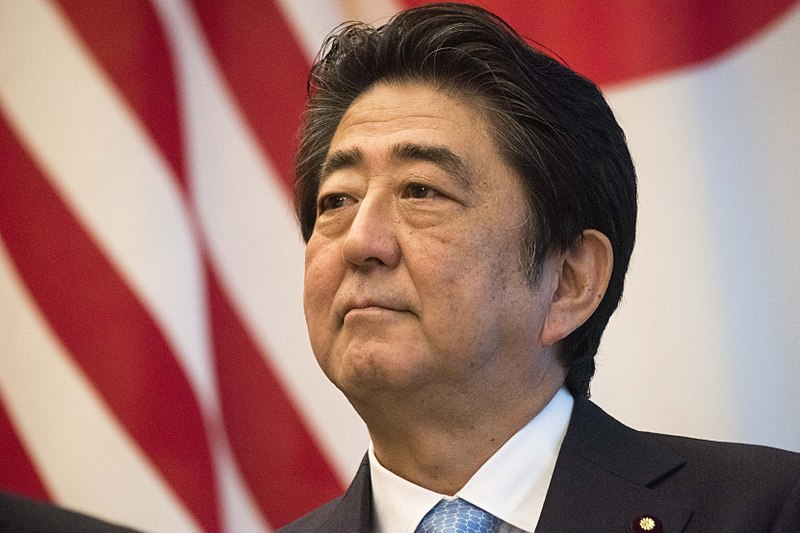The upper house of parliament finally approved the budget on Wednesday. The paper went through the lower house last month.
Attention is now shifting to discussing a fiscal reform plan to limit public debt, the largest among the industrialized countries.
Analysts doubt that Japanese Prime Minister Shinzo Abe will promote a painful reform, while he faces the most serious political crisis since taking office in late 2012.
Recently, Abe found himself under pressure against the background of a scandal, the reason for which was the sale of state-owned land at a low price to the nationalist organization Moritimo gakuen.
Land in the prefecture of Osaka was sold to Moritimo gakuen in 2016 only for a small part of the market value. This transaction led to accusations of nepotism, since the Prime Minister's wife was familiar with the head of the organization.
According to a survey conducted by the newspaper The Asahi Shimbun, the level of support for the Japanese government has fallen to a minimum since 2012. Over the month, the Cabinet Support rating dropped down by 13 percentage points to 31%. The level of discontent with the government increased by 11 percentage points to 48% against the backdrop of the political scandal in Japan.
The budget covers expenses for 97.7 trillion yen ($ 925.89 billion), which is more than 97.5 trillion yen originally planned for the current financial year. In particular, the budget provides for large expenditures on social security in the conditions of rapid aging of the population, as well as record military expenditures against the backdrop of tensions in the region related to China and North Korea.
The inability to contain costs casts doubt on Abe's desire to support fiscal reform. The prime minister expects that economic growth will lead to an increase in tax revenues, and the policy of low interest rates of the Bank of Japan will limit the high cost of servicing the public debt.
source: reuters.com
Attention is now shifting to discussing a fiscal reform plan to limit public debt, the largest among the industrialized countries.
Analysts doubt that Japanese Prime Minister Shinzo Abe will promote a painful reform, while he faces the most serious political crisis since taking office in late 2012.
Recently, Abe found himself under pressure against the background of a scandal, the reason for which was the sale of state-owned land at a low price to the nationalist organization Moritimo gakuen.
Land in the prefecture of Osaka was sold to Moritimo gakuen in 2016 only for a small part of the market value. This transaction led to accusations of nepotism, since the Prime Minister's wife was familiar with the head of the organization.
According to a survey conducted by the newspaper The Asahi Shimbun, the level of support for the Japanese government has fallen to a minimum since 2012. Over the month, the Cabinet Support rating dropped down by 13 percentage points to 31%. The level of discontent with the government increased by 11 percentage points to 48% against the backdrop of the political scandal in Japan.
The budget covers expenses for 97.7 trillion yen ($ 925.89 billion), which is more than 97.5 trillion yen originally planned for the current financial year. In particular, the budget provides for large expenditures on social security in the conditions of rapid aging of the population, as well as record military expenditures against the backdrop of tensions in the region related to China and North Korea.
The inability to contain costs casts doubt on Abe's desire to support fiscal reform. The prime minister expects that economic growth will lead to an increase in tax revenues, and the policy of low interest rates of the Bank of Japan will limit the high cost of servicing the public debt.
source: reuters.com





